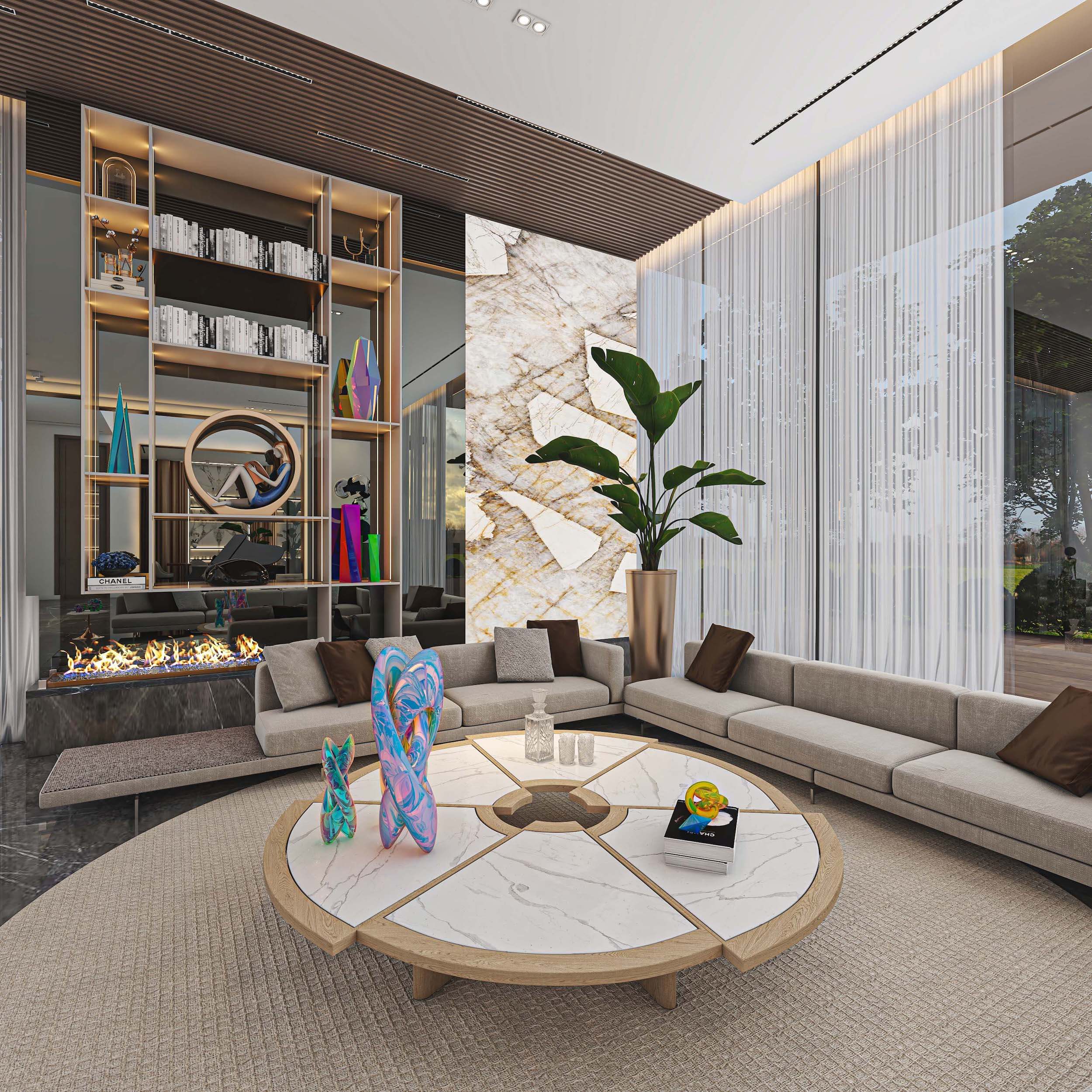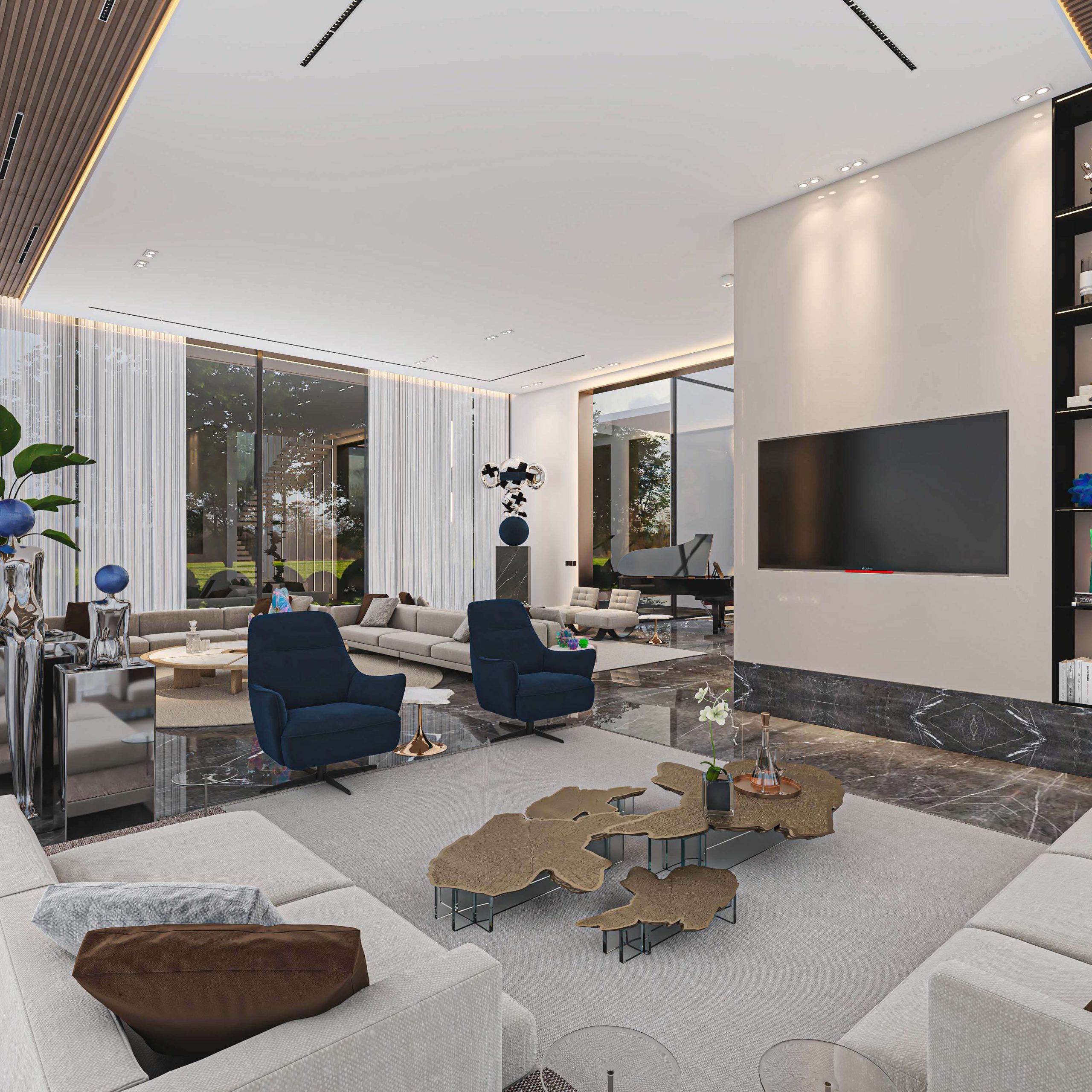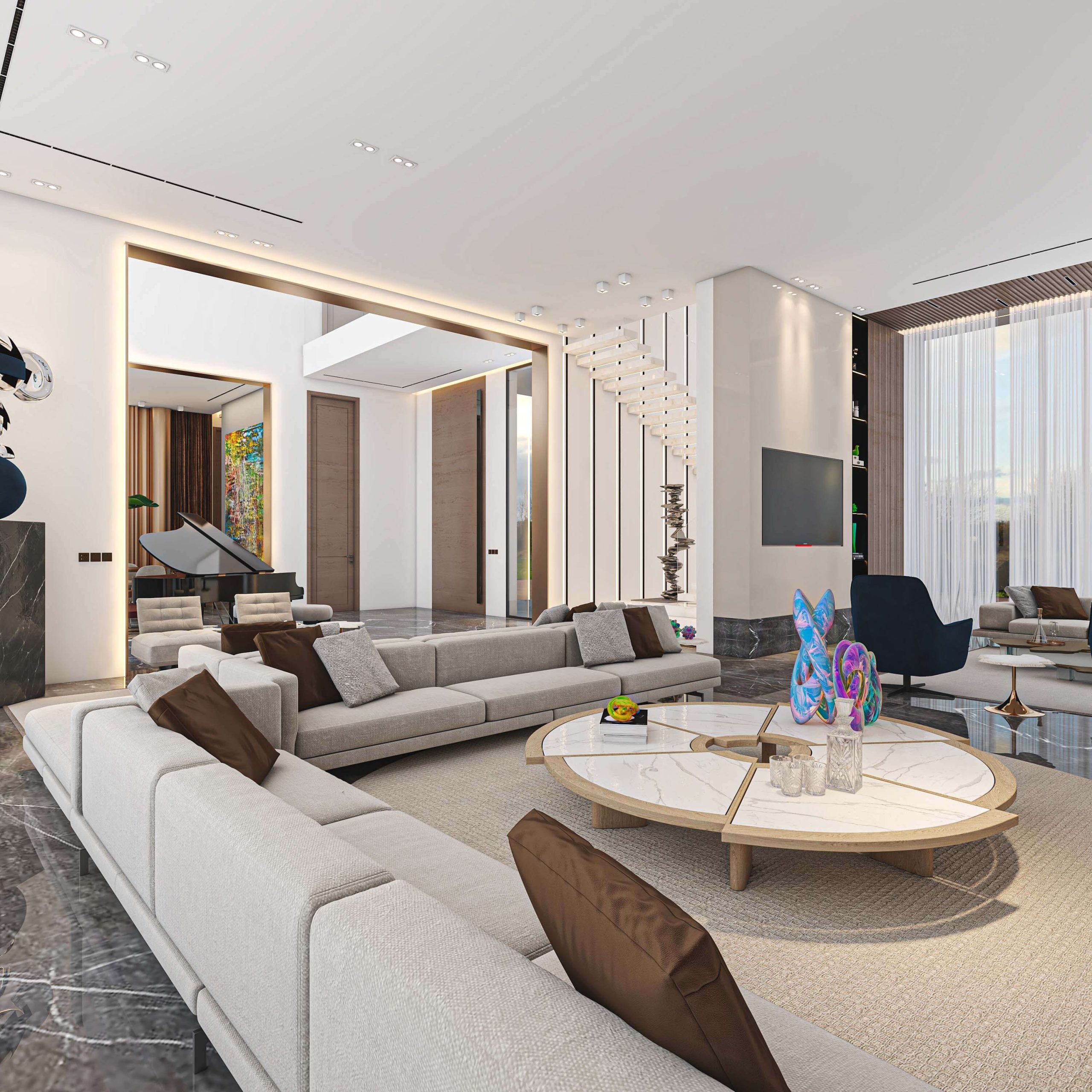Lifestyle
Round, Rectangular, or Ragged: Interior Architect Aly Hammoud and Choosing the Perfect Coffee Table

Saying “yes” to the right coffee table never gets any easier. An essential element of any well-thought-out living room, the choice often comes down to finding the right balance between form and function. Regardless of the designer’s direction with their space, choosing the right coffee table is a critical step toward achieving a cohesive and visually appealing interior design.
Designers must consider several factors when choosing a coffee table. First, the table size should be proportional to the size of the living room. A small coffee table in a large room will look out of place, and a large table in a small room will overwhelm the space. The table’s height is just as important. The ideal height typically falls between 16 and 18 inches, the same as most sofas. A coffee table that is too high or too low will prove uncomfortable for everyday use.

Designers must also consider shape, style, color, material, and space awareness. The table should complement the architecture of the room.
For example, round coffee tables are ideal for square rooms because they create contrast. It’s also important to consider the shape of the furniture, specifically the edges. A round coffee table would be an ideal fit for a living room where the sofa’s edges are also rounded.
The contrast in shapes, however, must be paired with coherence in materials. For example, if the furniture is made from mahogany wood, the table should reflect similar materials and hues. Different materials can be incorporated if the furniture contains metallic elements while considering the room’s overall coherence.
Space awareness is also essential to consider when choosing your coffee table. For instance, rectangular tables fit better in longer and narrower rooms because they don’t take up as much space as round or ragged tables. Suppose your room is spacious and wide enough. In that case, especially if it were an open studio, you can easily fit in round or ragged coffee tables, which are typically more challenging to style and arrange in certain spaces.

Most of the time, the table should match the space’s overall aesthetic. However, mixing elements and styles can help achieve a more dynamic finished product. Consider incorporating a mid-century coffee table in a room with more contemporary pieces or vice versa.
Ragged tables, however, are more sophisticated art pieces. Such tables don’t have a conventional shape, size, color, or edges. They can also have different and unique color patterns that must be mixed and matched professionally with your room’s overall aesthetic.
Of course, you can pick any type of coffee table that suits your needs and preferences in style and aesthetic. You need to make sure, however, that it is the ideal fit for the chosen room, furniture, style, and design. One way to do that is by choosing the right person for the job.

Coffee tables are an essential part of interior architecture. Not only do they function as practical surfaces for drinks and snacks, but they also contribute to the space’s general mood. Interior architects like Aly Hammoud understand coffee tables as powerful tools for tying a room together. They can create a focal point or complement other furniture pieces in the space.
Whether professional or amateur, the right designer should choose the coffee table carefully to ensure it fits seamlessly into the room’s overall design.
Check out Aly Hammoud’s Instagram account for more information.
Lifestyle
When Seasons Shift: Dr. Leeshe Grimes on Grief, Loneliness, and Finding Light Again

Some emotional storms arrive without warning. A sudden change in weather, a holiday approaching, or even a bright sunny day can stir feelings that don’t match the world outside. For many people, the hardest seasons are not defined by temperature; they are defined by what’s happening inside, where grief and loneliness often move quietly.
This is the emotional terrain where Dr. Leeshe Grimes has spent her career doing some of her most meaningful work. As a psychotherapist, registered play therapist, retired U.S. Army combat veteran, and founder of Elevated Minds in the DMV area, she understands how deeply seasonal shifts and unresolved grief can affect people. Her upcoming books explore this very space, guiding readers through the emotional weight that can appear during different times of the year.
What sets Dr. Grimes apart is her ability to see clearly what many people overlook. Seasonal depression, for example, is usually tied to winter months. But she often sees it appear during warm, bright seasons, the times when the world seems happiest. For someone already grieving or feeling disconnected, watching others travel, celebrate, or gather can create its own kind of heaviness. Sunshine doesn’t always lift the mood; sometimes it highlights what feels missing.
The same misunderstanding surrounds grief. Society often treats it as a short-term experience with predictable phases and a clean ending. But in her practice, Dr. Grimes sees how grief keeps evolving. It doesn’t disappear on a timeline. It weaves itself into routines, memories, and milestones. People learn to carry it differently, but they rarely leave it behind completely. And that’s not failure, it’s human.
Her approach to mental health centers on truth rather than pressure. She encourages clients to acknowledge the emotions they try to hide: sadness that lingers longer than expected, moments of joy that feel out of place, and the waves of loneliness that return even when life seems stable. Instead of pushing for quick recovery, she focuses on helping people understand how emotions shift and how to care for themselves through those changes.
Much of her insight comes from her military years, where she witnessed the emotional toll of loss, transition, and constant survival. She saw how people continued functioning while carrying pain that had nowhere to go. That experience shaped her belief that healing requires space, space to feel, to speak, and to move through emotions without judgment.
In her clinical work today at Elevated Minds, she encourages people to build small, steady habits that anchor them during difficult seasons. Journaling helps them recognize patterns and name what feels heavy. Community support breaks the cycle of isolation. Therapy creates a place where emotions don’t have to be minimized or explained away. And intentional routines, daily sunlight, mindful breaks, and calm evenings help rebuild emotional balance.
Her upcoming books expand on these ideas, offering practical guidance for navigating both grief and seasonal depression. She focuses on helping readers understand that healing is not about escaping pain. It’s about learning how to live with it in a healthier way, honoring memories, acknowledging loneliness, and still allowing room for moments of light.
What makes Dr. Leeshe Grimes a compelling voice in mental health is her ability to bring language to experiences that many struggle to explain. She reminds people that emotional seasons don’t always match the weather and that there is no single path through grief. But within those shifts, she believes there is always a way forward.
The seasons will continue to change. And with the right tools, compassion, and support, people can change with them, finding steadiness, softness, and light again, one step at a time.
-

 Tech5 years ago
Tech5 years agoEffuel Reviews (2021) – Effuel ECO OBD2 Saves Fuel, and Reduce Gas Cost? Effuel Customer Reviews
-

 Tech6 years ago
Tech6 years agoBosch Power Tools India Launches ‘Cordless Matlab Bosch’ Campaign to Demonstrate the Power of Cordless
-

 Lifestyle7 years ago
Lifestyle7 years agoCatholic Cases App brings Church’s Moral Teachings to Androids and iPhones
-

 Lifestyle5 years ago
Lifestyle5 years agoEast Side Hype x Billionaire Boys Club. Hottest New Streetwear Releases in Utah.
-

 Tech7 years ago
Tech7 years agoCloud Buyers & Investors to Profit in the Future
-

 Lifestyle5 years ago
Lifestyle5 years agoThe Midas of Cosmetic Dermatology: Dr. Simon Ourian
-

 Health7 years ago
Health7 years agoCBDistillery Review: Is it a scam?
-

 Entertainment7 years ago
Entertainment7 years agoAvengers Endgame now Available on 123Movies for Download & Streaming for Free
